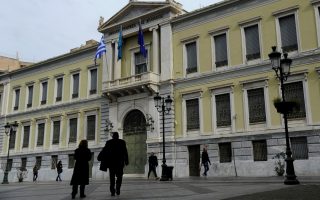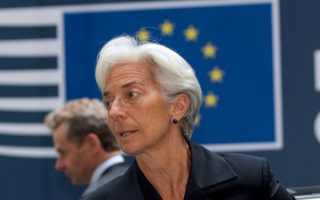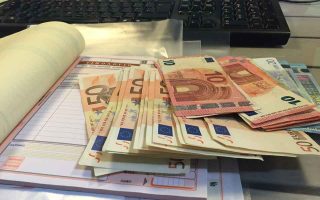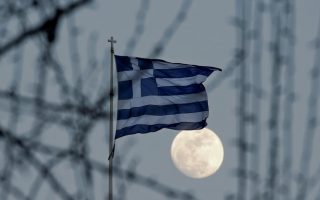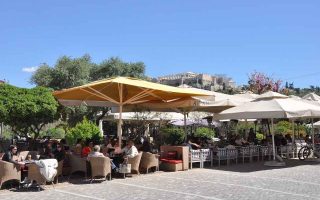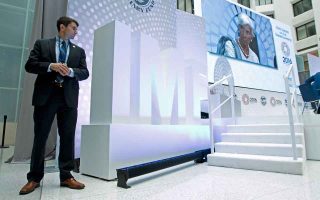Greece and Saudi Arabia usher in new era of relations
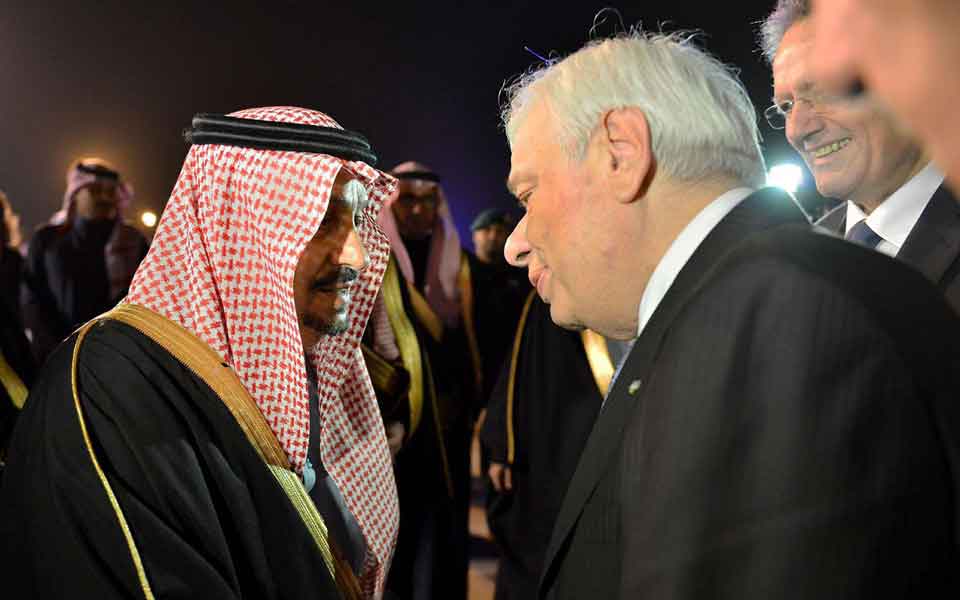
The visit of Greek President Prokopis Pavlopoulos and 11 Greek ministers and top businessmen to Saudi Arabia, during which he will meet with King Salman and cabinet ministers, ushers in a new era of bilateral relations.
Reigniting the joint ministerial committee is of crucial importance, having met last in 1999. Diplomatic relations between Greece and Saudi Arabia started as early as 1926. The first Greek Embassy in the Kingdom was established in Jeddah in 1943, but in 1963 the Greek Embassy was moved to Riyadh, where it became operational in 1985.
Greece has a longstanding relationship with the Arab world and Saudi Arabia in particular. It has been a holiday destination for Saudis since the arrival of King Saud in the coastal Athens suburb of Kavouri in the late 1960s. Many Saudis have fond memories of honeymooning in Greece in the 1970s and 80s. And the new generation, of which 70 percent are below the age of 30, are now flocking to the islands of Myconos, Santorini, Crete and Corfu.
Greece has traditionally maintained strong ties with the Arabs. It was, for example, the only European state to vote against the partition of Palestine in the United Nations General Assembly in 1947, and since then it has consistently backed the Palestinian cause. Even the leaders of the pro-American military dictatorship (1967-74) refused to grant the US overflight or ground facilities to supply Israel with arms during the 1973 war, while allowing Soviet planes to pass through Greek air space to airlift military supplies to Egypt. As a result, Greece was excluded from the Arab oil boycott.
Yet there were also economic factors behind the Greek-Arab relationship. By the 1970s some Greek companies had achieved a prominent role in the Arab world where they were executing significant construction projects. Furthermore, the Arab markets were important for the export of Greece’s agricultural products. The Arab world continued to be the second largest export market for Greece (after the European Community) throughout the 1980s and the first half of the 1990s.
Saudi Arabia has for a very long time been one of the top markets for Greek products in the Middle East region, and food products have always been one of the top exports of Greece to the Kingdom.
Tourism offers plenty of investment opportunities in Greece. The country combines a stunning landscape, hospitality as well as excellent climatic conditions for tourism throughout the year. For this reason, more than 22 million tourists annually opt to travel to Greece for holidays. Saudi investors have been one of the largest equity participants in tourism over the last three years. The Athens Hilton Hotel (2016), Costa Navarino resort (2014), as well as Astir Palace (2016) in Vouliagmeni, are recent notable investments by Saudi investors.
Many Saudis have invested over the years in real estate, benefiting from the right to receive a residence permit should they own a 250,000-euro real estate asset or have signed a 10-year timeshare contract.
Potential investment areas in Greece extend beyond tourism too. Some Saudi investors have a strong and historic presence in Greece. For example, Olayan, one of Saudi Arabia’s most respected investment groups, has a longstanding presence in Greece, being one of the biggest stakeholders in Greek bottler Coca-Cola HBC and the Chipita food company. The Saudis have also participated in the share capital of Athens-listed company Flexopack.
The next decade in Greece is set to see sustained growth in tourism, information and communications technology, energy, environmental sciences, food, beverages and agriculture, logistics, and life sciences. Greece’s exceptional human capital, advanced infrastructure, geostrategic position, and potential for economic expansion are attracting investor interest from around the world. And Greece’s newly designed investment framework supports the creation of new businesses, new synergies, and new partnerships.
Over the last year and a half, Saudi Arabia has embarked on the most pivotal economic reform program in its 85-year modern history. Vision 2030, announced less than a year ago, has set the Kingdom apart from any emerging market economy, outlining a specific and much needed road-map for beyond the oil era. Saudi Arabia is the largest free market economy in the Middle East and North Africa, with a 25 percent share of the total Arab gross domestic product. The Kingdom’s geographic location provides easy access to export markets in Europe, Asia and Africa of more than 450 million consumers. It has a continuously expanding domestic market which is adding to a young and consuming population with strong buying power. The Saudi Riyal is one of the world’s most stable currencies, with no critical changes in its exchange rates during the last three decades. Saudi Arabia permits the transfer of capital and profit abroad.
There are possible synergies that could be deepened. Saudi Arabia is heavily investing in defense and security. Its view of security is not limited to traditional arms purchases and defense alliances. Riyadh sources 98 percent of its annual defense expenditures from foreign suppliers. Under Vision 2030, Saudi Arabia plans to “localize” half of its arms purchases domestically within 13 years.
Both countries can explore ways to ensure food security, as well as investing heavily in agricultural land in Greece.
The location of the Gulf is crucial for eastbound flights to destinations such as Australia, home to the second largest overseas Greek population. Many skilled Greeks with degrees in engineering and medicine are working in Saudi Arabia. There are hardly any private hospitals today in Saudi Arabia without a Greek doctor.
Economic diplomacy is the core characteristic defining bilateral relations between the two countries. Greece’s economic crisis requires it to search for new markets while Saudi Arabia’s diversification efforts can be strengthened with a trusted partner that is less than three hours away by plane. I have been privileged to work and live in a welcoming and warm place with Saudi Arabia’s world-class talented people. Greeks and Saudis have much more in common than meets the eye.
* Yiannis Sfakianakis is director of Economic Research at the Gulf Research Center in Riyadh.
